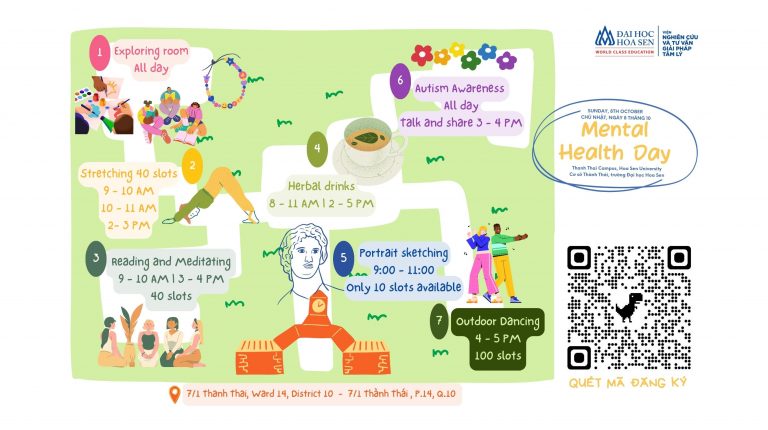Sharing topic: CONDUCT CULTURE IN SCHOOL

The content focuses on lively exchanges with students about culture, communication, and some ways to deal with negative behaviors in communication and behavior in school.
*** Firstly, culture is the way of life of a group of people consisting of behaviors, beliefs, values , and symbols that they naturally accept without thinking about them and that are transmitted through communication and imitated from one generation to the next (Samovar and Porter, 1994).
– Regarding behavior, some examples of greeting behavior in everyday Vietnamese culture such as greeting teachers, parents, adults, friends, and customers may have differences. certain difference. There are differences in the greeting culture of Japanese and Vietnamese people. The cultural greeting behavior of Vietnamese people often greets each other, which may be accompanied by a slight nod and smile and may be followed by asking about their health, job, where they are going, and what they are doing…. It is a way of caring for the greeted person, showing affection and friendliness. In Japanese greeting culture, they bow to each other. Japanese people, depending on the subject, divide into different types of greetings such as: bowing 15 degrees, 30 degrees, or 45 degrees and men and women will place their hands differently.
– Regarding beliefs in Vietnamese culture, the constitution and Vietnamese people believe that everyone is equal; Therefore, everyone wants to treat each other fairly and equally, with kindness and dignity, and we believe that people can change for the better after making mistakes.
– Regarding values, recently we have talked a lot about national values, the core values of the nation that reflect the aspirations and desires of the entire nation to achieve the fundamental values of peace. peace, unity, independence, freedom, happiness, democracy, rich people, strong country, justice, civilization, humanity.
– Regarding symbols, this is the typical outer shell of a country’s culture that anyone can see such as food, architecture, language or traditional costumes, flag, Lotus flowers, and cuisine – Pho, and Banh Mi have been included in the world’s dictionary.

*** Second, communication is a process of exchanging information, ideas, feelings, emotions, and opinions verbally or nonverbally between two or more people ( WH Newman & CF Summer).
We often understand each other in communication, but there are times when we do not understand each other. That’s why real communication is difficult because we can infer or easily think we understand the speaker’s meaning and think we understand the speaker’s meaning, without clarifying the speaker’s meaning, so we often misunderstand the speaker’s meaning—sender in the communication process. When we respond, it doesn’t feel right and we say “I thought” like that easily leads to sadness, anger, anger, screaming and very bad behavior. Therefore, to communicate effectively and successfully requires us not only to have solid background knowledge, but also many skills such as effective listening skills, questioning skills, problem clarifying skills, and communication skills. Summary skills, note-taking skills, reading and writing skills, critical thinking skills, empathy skills, tolerance skills, and many other skills. Most importantly, we need to have a positive attitude, be open, learn, look back, and correct mistakes.
*** The third point is to learn about behavior.
Conduct is attitude, behavior, and speech in communication between people. Conduct is a compound word of the two words conduct and conduct. In particular, “respond” means to cope, to improvise. And “treat” means to deal with, handle, deal with. Behavior is the way people choose to treat each other in daily communication. Therefore, each individual when communicating needs to behave appropriately and effectively, depending on the role, situation, and purpose of communication. Students need to understand the basic rules of communication with teachers, parents, grandparents, neighbors, and friends to communicate appropriately such as:
- For teachers: Ensure respect, politeness, and polite, concise, and clear speech. Greetings are higher than the feast, so children need to be respectful when greeting and must not have behaviors, gestures, or words that lack moral standards and are disrespectful. Know how to apologize, admit mistakes, and correct mistakes.
- With grandparents/parents: Greet politely, respect, ask questions, share, love, and care for everyone in the family. When asked, you must answer politely, gently, and clearly. Do not be rude, profane, provoke, attack, or condemn grandparents, parents, and elders.
- With friends: need to ensure intimacy, openness, innocence, no fuss, no frills, and help each other. Call each other by name or friend, you, me, do not imitate the other person’s voice, tease, or disparage flaws in appearance or personality traits.
- With society: Behavior in communication must be polite, gentle, considerate, helpful, asking, sharing sincerely, no arguing, no friction, no revenge.
- Behave in daily life to ensure that you walk softly and speak softly, do not litter, do not shout, do not cause disorder and security, and do not make noise, or lose general hygiene.
*** The fourth point is behavioral communication. Behavioral communication is understood as the response of individuals, organizations, and groups. Each individual needs to communicate and behave delicately and wisely because this is the bridge to connect and develop in daily life. At the same time, this skill also brings many other benefits when communicating such as making a good first impression and being loved in a specific situation. When communicating, children should immerse themselves in the other person’s story, find neutral, safe, and not too personal topics to start a conversation, especially avoid prejudice and discrimination, and respect diversity: region, gender, religion, skin color, ethnicity.

*** Finally, some simple ways to overcome negative behavioral cultural manifestations in schools are through the application of the six senses.
- Ears are very important. We need to practice listening skills with both our hearts and minds. Listen attentively. To listen effectively and achieve communication goals, we need to keep our minds calm and calm, without making baseless assumptions or imaginations, and need to focus on the message being conveyed. In daily communication, it is easy for us to misunderstand each other and easily interpret and think according to our ideas, so sometimes we do not understand the speaker’s meaning correctly.
- Eyes play an important role because a hundred hearings are not as good as one seeing. The eyes are also the windows to the soul and we need to look straight, but not stare when communicating. Look culturally appropriate, look loving, polite, respectful, friendly, and dignified so as not to be called “bad eyes”.
- Hands are tactile and are also very important in cultural behavior. Nowadays, we use social networks a lot and sometimes our hands are faster than our heads or are called keyboard warriors. Therefore, we also need to think carefully before posting any information on social networks. In addition, when shaking hands, learn about the handshake culture to shake hands appropriately. Hands should not be touched haphazardly in communication and we should ask permission when touching someone to avoid culturally sensitive issues or sexual harassment.
- Mouth – Our ancestors have a saying: “Disease comes from the mouth, disaster comes from the mouth”. In communication, if we can’t say anything nice, maybe we should choose silence and choose someone we trust to say private things. Words don’t cost money to buy, choose your words to please each other. If you make a mistake, you must know how to correct it.
- The nose is the sense of smell. Nowadays we need to pay attention to taste because many people are allergic to smell. We should keep our bodies clean and keep our natural odor the best.
- Finally, how we feel when we communicate, communication is difficult. Each person is unique and individual. Therefore, we need to be flexible in our behavior and be careful to avoid bothering others and avoid wasting other people’s time unnecessarily.

















